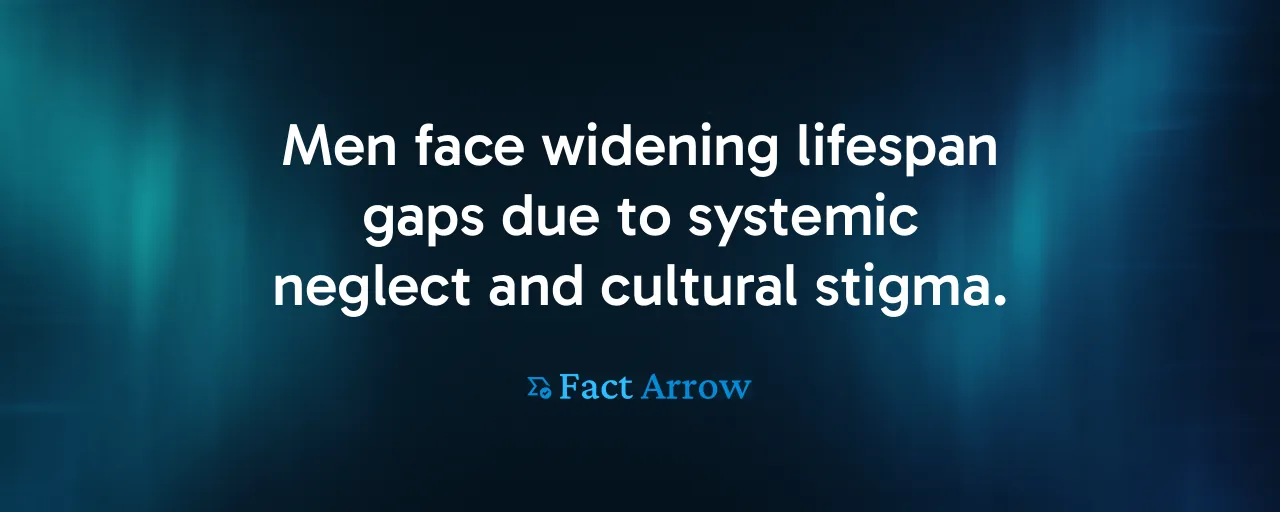A Silent Emergency
American men are slipping away. On average, they live almost six years less than women, the largest gap in nearly 30 years. Heart disease, suicides, and overdoses claim too many, too soon. Black men face an even grimmer reality, with lifespans over a decade shorter than white women's. The White House recently drew attention to this during National Men's Health Week, promising lower drug prices and a new health commission. But these steps, while welcome, don't dig deep enough. The real culprits? Cultural pressures and systemic barriers that keep men from care.
This crisis touches every community. Fathers miss milestones, brothers leave voids, and sons grow up without guides. Rural men, veterans, and those without degrees bear the heaviest tolls. The administration's pledges sound heartfelt, but they skirt the heart of the issue. Men need more than affordable meds. They need a society that values their health over outdated ideals of toughness. We can't keep losing lives to problems we know how to solve.
Breaking the Mold of Manhood
Society has long told men to stand alone, to hide pain, to tough it out. Influential voices amplify this, linking strength to aggression or distrust of health advice. The result is devastating. Only 60 percent of men get annual check-ups, and 40 percent delay care until symptoms turn severe. Men's suicide rate towers four times higher than women's, with firearms playing a grim role in over half of those deaths. These patterns aren't random, they stem from a culture that equates vulnerability with failure.
Some claim this rugged ideal is under siege, arguing that calls for equality or mental health support threaten men's identity. This perspective falls apart under scrutiny. Men who embrace openness, through therapy, peer groups, or even meditation, live healthier, fuller lives. A 2025 survey by Equimundo shows men who reject rigid roles report 34 percent fewer depressive symptoms. Connection and care strengthen men. Why cling to a model that's failing so many?
Policy That Saves Lives
The White House points to its new drug pricing order, aiming to match costs to what other nations pay. With 30 percent of Americans skipping meds due to price, this matters. But cheaper drugs alone won't bridge the life expectancy gap. Men need access to doctors, screenings, and mental health support. Recent rules ensuring equal coverage for mental and physical care reach 175 million people. Proposals for a federal Office of Men's Health could go further, embedding screenings and crisis support in every community.
Yet some leaders frame men's health as a cultural fight, railing against evolving societal norms or pushing divisive policies like bans on gender-affirming care. This rhetoric distracts from practical solutions. One practical solution involves funding mobile crisis teams for rural areas, where suicide rates climb. Or scaling up campaigns like 'Stronger Together,' where veterans and athletes share their therapy journeys. These efforts show men that seeking help is a sign of true strength, cutting through the noise of division.
Strength Through Connection
What if manhood were defined by care and connection? More men are already leaning this way. The men's self-care market, from wellness apps to barbershop therapy groups, is booming, with 95 percent of millennial men naming mental health a top priority in 2025. These shifts prove men are ready to embrace roles as caregivers, allies, and nurturers, roles that lower violence and lift well-being. But top-down promises to 'champion' men often lean on old stereotypes, missing this growing wave of change.
Others resist this evolution, tying health to dominance and cheering cost cuts while dodging broader fixes like Medicaid expansion or paid leave. These half-steps leave men caught in the same traps. Real progress invests in communities, more clinicians, better outreach, and spaces where men can connect. It celebrates fathers who model empathy and sons who seek therapy. This vision of strength is what men are already building for themselves.
Time to Act
Men's health can't wait. The life expectancy gap, the rising suicides, the untreated diseases, these are urgent calls to action. We need policies that deliver care to every corner of the country, campaigns that normalize help-seeking, and a culture that honors men for their humanity and grit. Every man deserves a shot at a long, healthy life, unburdened by expectations that no longer serve us.
Let's move past division and build a future where men thrive through connection and support. The evidence is clear, the solutions are within reach, and the cost of inaction is too great. We can create a system that lifts men up.
